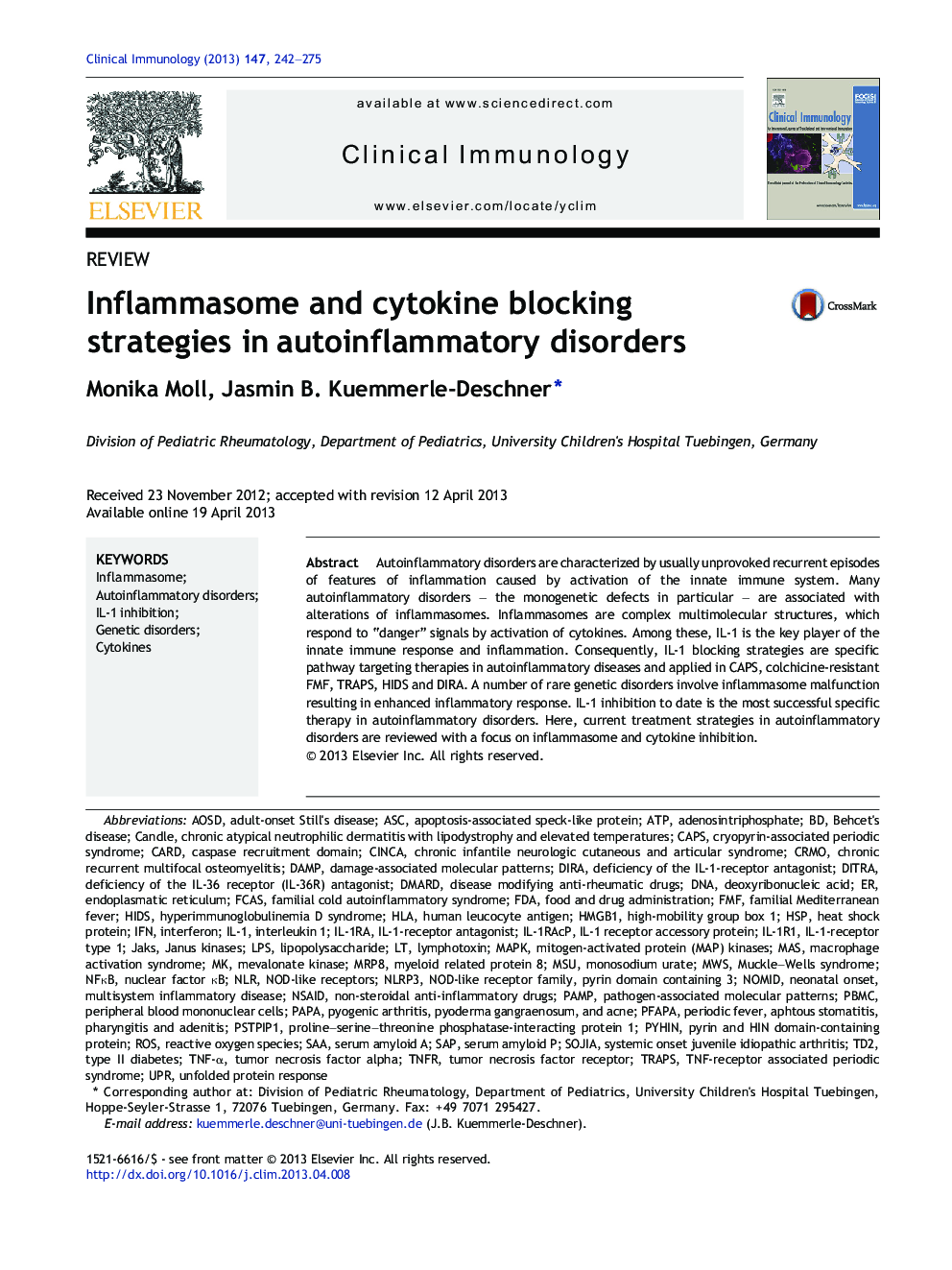| کد مقاله | کد نشریه | سال انتشار | مقاله انگلیسی | نسخه تمام متن |
|---|---|---|---|---|
| 3257023 | 1207386 | 2013 | 34 صفحه PDF | دانلود رایگان |

• The spectrum of autoinflammatory disorders is rapidly expanding.
• IL-1 dysregulation causes many autoinflammatory disorders.
• IL-1 inhibition is the most successful therapy in many autoinflammatory disorders.
Autoinflammatory disorders are characterized by usually unprovoked recurrent episodes of features of inflammation caused by activation of the innate immune system. Many autoinflammatory disorders – the monogenetic defects in particular – are associated with alterations of inflammasomes. Inflammasomes are complex multimolecular structures, which respond to “danger” signals by activation of cytokines. Among these, IL-1 is the key player of the innate immune response and inflammation. Consequently, IL-1 blocking strategies are specific pathway targeting therapies in autoinflammatory diseases and applied in CAPS, colchicine-resistant FMF, TRAPS, HIDS and DIRA. A number of rare genetic disorders involve inflammasome malfunction resulting in enhanced inflammatory response. IL-1 inhibition to date is the most successful specific therapy in autoinflammatory disorders. Here, current treatment strategies in autoinflammatory disorders are reviewed with a focus on inflammasome and cytokine inhibition.
Journal: Clinical Immunology - Volume 147, Issue 3, June 2013, Pages 242–275